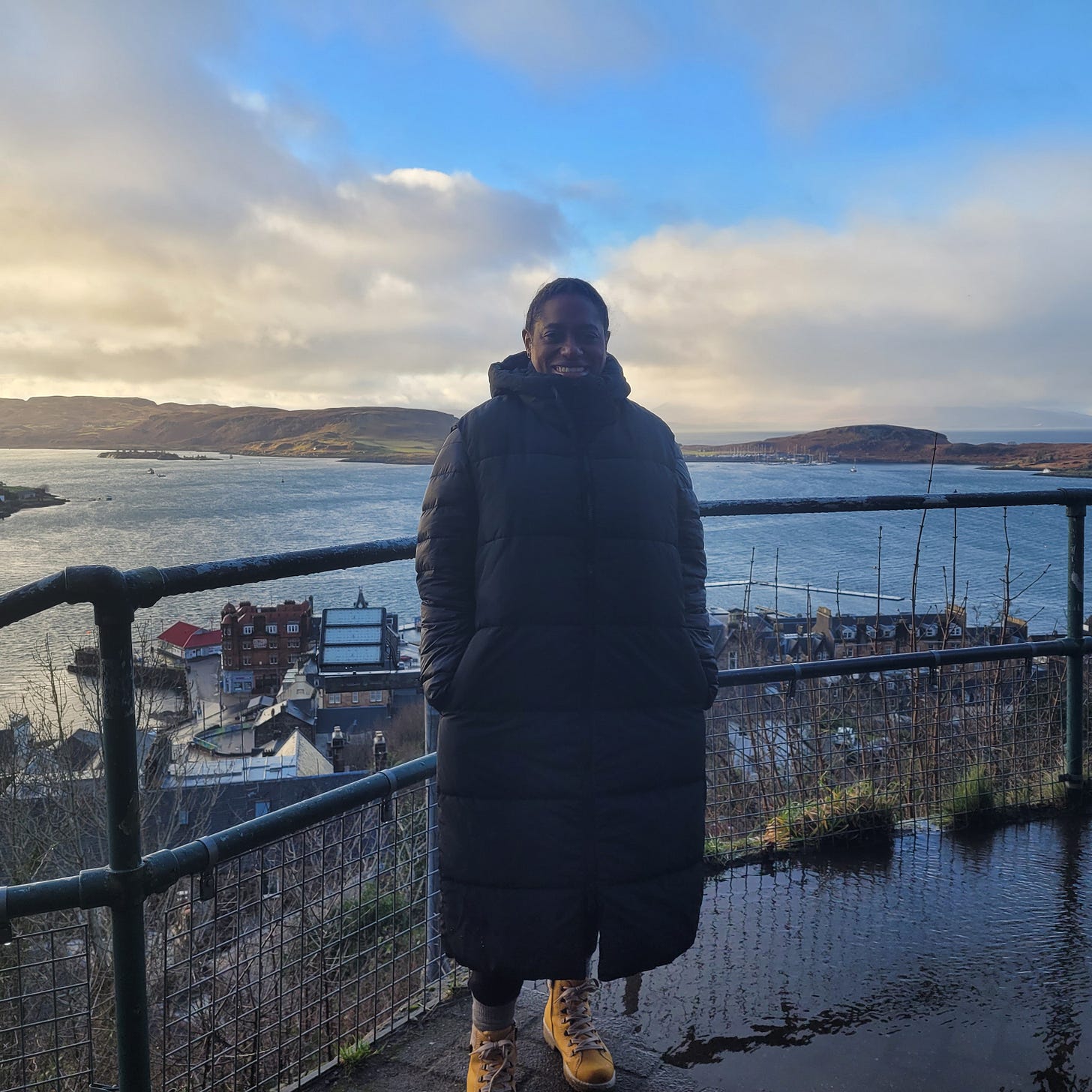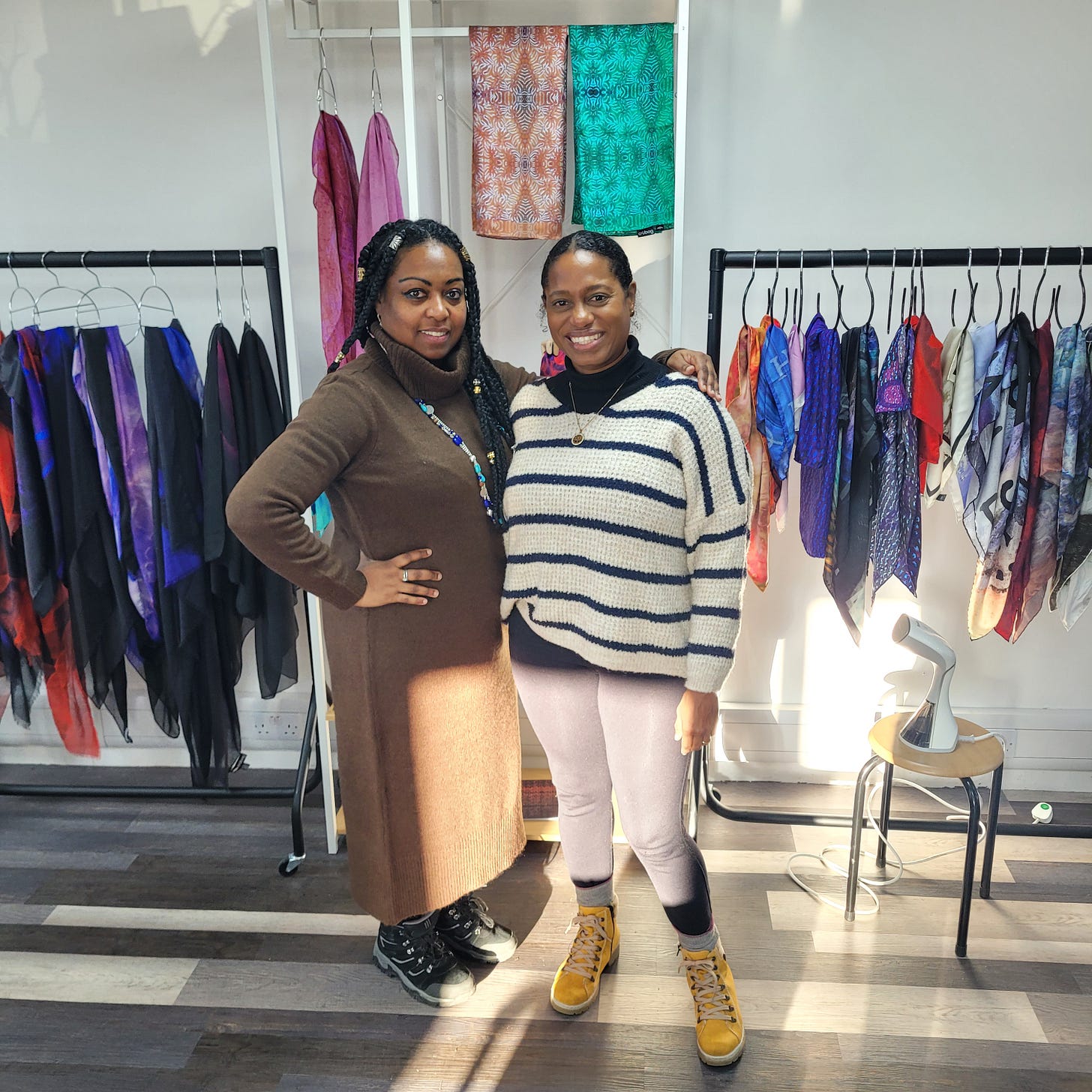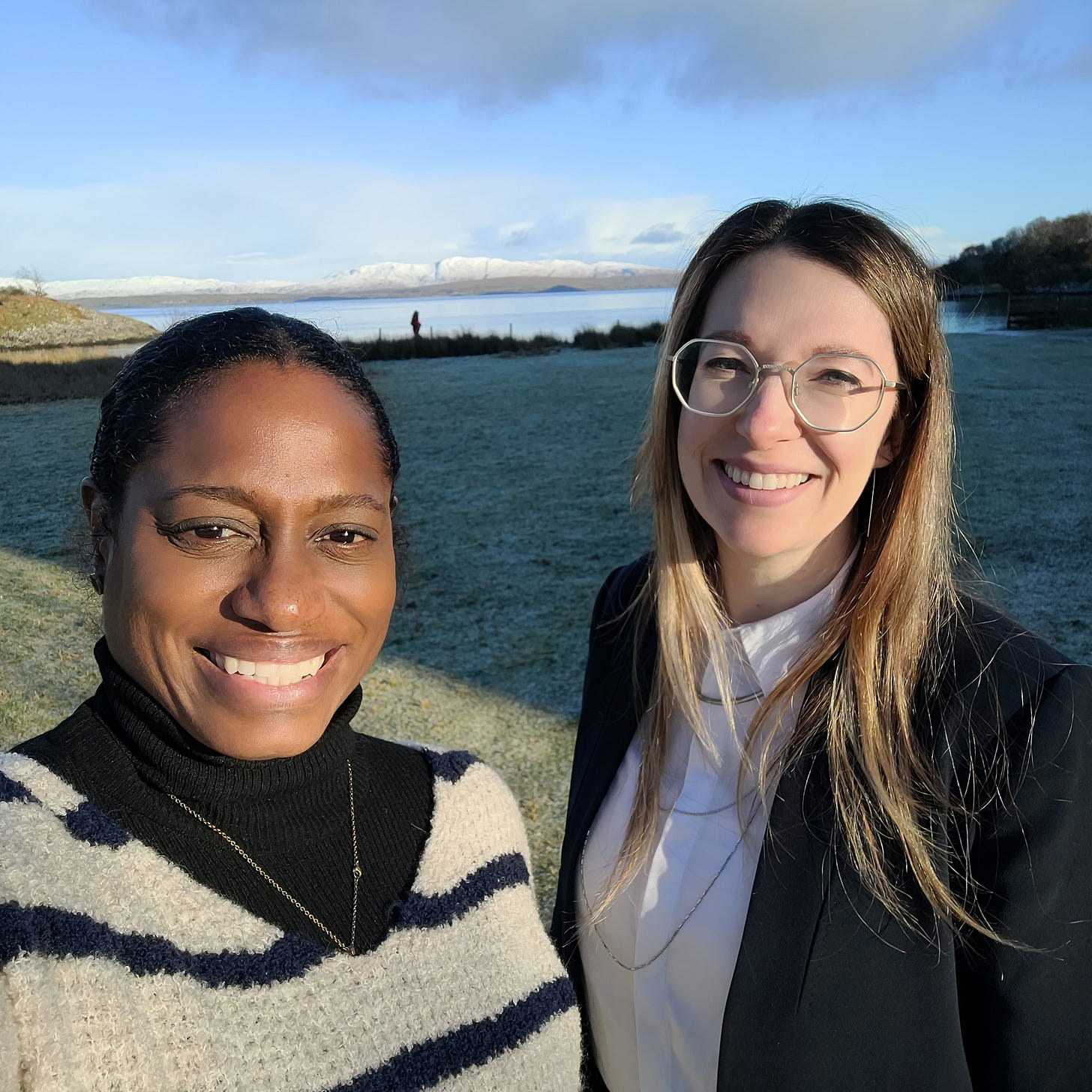Scottish Association for Marine Science (SAMS)
Increasing the networks and collaborations between Scottish and Caribbean Scientists, A visit to the Seaweed Academy and European Marine Science Park, Oban, Scotland
Hello Everyone,
And thank you for joing us if you just signed up.
After visiting Stirling, Scotland for the first time in March 2023 (see previous posts), I was not prepared for the cold and so it was on my to-do list to return during a much warmer month. But when windows of opportunities come calling these days I don't hesitate. And so on January 13th, I found myself in even colder, frostier and snowy Oban, Scotland to learn more about the Scottish Association of Marine Sciences (SAMS).
This spontaneous visit came about by meeting fellow Jamaican Lisa Lambie on LinkedIn who happens to be living in Oban Scotland and is a member of the European Marine Science Park, a co-working space for leaders of the Blue Economy in Scotland and a Managing Partner & Chief Impact officer at Maroon Invest Global.
Read more about Maroon Invest Global which is an impact investment platform and highly differentiated venture fund…
Although Lisa was the impetus as she encouraged me to visit Oban, my interest had already been peaked as in the last months of 2023, I became interested in seaweed farming in the Caribbean through consulting projects that I was working on. As there are not many Seaweed specialists from or in the Caribbean, I reached out to Rhianna Rees from the Seaweed Academy for assistance. So I decided it was the best moment to visit the scientists who had been so helpful to me.
Seaweed Farming in the Caribbean
My interest in seaweed farming started with a project on seaweed farming in Belize and a consequent visit to St. Lucia and Jamaica last year to assess seaweed farming activities in these countries. Seaweed farming in both countries is at extreme ends of production. While farming started in 1985 in St. Lucia and that country is now the largest exporter in the Caribbean, Jamaica has yet to begin.
Seaweed is known in the Caribbean as seamoss or Irish moss, and as long as I can remember my only knowledge of seamoss was with a milky drink with spices made by Rastafarians as a well-known aphrodisiac.
Marine algae has existed as a source of human food for generations in Asia and Europe. China being the main consumer of 74 species of edible algae. The nutritional value make seaweeds a valuable dried edible plant or as an ingredient in healthy foods. They are also used for animal nutrition as feed or as fertilizers and and industrial phycocolloids.
While the volume of seaweed consumed in the Caribbean is small compared to that in Asia, the Caribbean Sea is rich in edible marine algae, however very few species are used.
In the Caribbean, seaweed has been consumed for at least a century. It is thought the Irish through colonization influenced the use of seaweed for food as seaweeds were prepared in similar way (hence the name Irish Moss). The most common are Gracilaria spp and Eucheuma isiforme.
With inland aquaculture declining due to high start-up costs and unavailability of quality aquafeeds, the potential for seaweed farming can be an alternative for fishfarmers, fishermen & coastal communities to earn an income.
So much potential and opportunities in seamoss farming abounds for the Caribbean which makes me wonder why is mariculture not taken more seriously in the Jamaica?
WHY DONT WE HAVE A CARIBBEAN CENTER FOR MARINE AQUACULTURE RESEARCH?
So, In 20°F weather, after a 2 1/2 hour train ride from Glasgow, I arrived in Oban to meet Scientists, Innovators and Entrepreneurs to learn more about what makes up a Marine Science Park and to find collaborators at the Seaweed Academy. For 3 days I had the privilege to meet one-on-one with Scotland’s top known marine and seaweed scientists.
Scottish Association For Marine Sciences (SAMS), Oban Scotland
We undertake research into all aspects of the marine system and exchange our new understanding with society, policy makers, business and the next generation, so that it can become useful and improve practices.
SAMS
Education programmes: Marine Science BSc (with Arctic Studies; Oceanography with Robotics; and Marine Biology streams); Aquaculture, Environment and Society MSc; Algal Biotechnology & Bioeconomics MSc; Algal Biotechnology, Biology and Ecology MRes; PhD. We also maintain a public visitor and outreach facility (Ocean Explorer Centre), deliver ocean literacy and STEM education for mostly young learners, and support the blue economy through our Seaweed Academy and Robotics Academy.
My first meeting was with Dr. Elizabeth Cottier Cook, Professor in Marine Biology and specialist in biosecurity and diseases of seaweeds. I heard so much about Dr. Cottier and her work, so how surreal it was to sit down over a cider on a cold Scotland night to chat with Liz about everything seaweed and how to engage more students in the Caribbean into aquaculture. Liz has made a significant difference to the students of the Erasmus Mundus Joint Master Degree in Aquaculture program which three of our own Science Advisors have been through.
As Programme Leader, her vision for students from around the world to take part in a program that gives them experience in three European countries as well as the option to finish their thesis on a topic of their home country has made an impact globally as well as in the Caribbean. From their classwork in Europe they will hopefully return to their home countries with a new vision. I encourage any of our Caribbean students that are interested in pursuing a 2 year Masters program in aquaculture sciences to apply for the Erasmus Mundus ACES-STAR program which is fully paid for.
Biosecurity for seaweed farms
One of Dr. Cottier’s specialties is the Biosecurity and Best Management Practices on a Seaweed farm. Other than knowledge of the ice -ice disease that can affect Caribbean seaweeds when it gets too hot, I learned from Liz that with the continuous cultivation of the very popular non native Kappaphycus Alvaerezi, over time there could be crash in cultivation if there is not an interjection of new cultivars.
So time to get those science experiments going on alternative species and cultivars!
THE SEAWEED ACADEMY
The UK’s only dedicated seaweed industry facility offering a complete package of training, education, and business development
Rhianna Rees is the Business Development Manager for the Scottish Seaweed Industry Association. Thanks to Rhianna I have been introduced into the world of Seaweed and I am now hooked!
The Scottish Seaweed Industry Association
In 2021, Rhianna launched the Seaweed Academy at SAMS which is leading the understanding and extending know-how in seaweed seeding, cultivation and disease management in the UK. The Academy has created a series of courses in technical and business skills to meet the industry’s need.
It also provides the emerging seaweed industry with seeded lines for grow-out, as well as consultancy spanning a number of key areas; farm set-up, infrastructure, harvesting and pathogen/disease control and management.
“Seaweed cultivation brings diverse pathways to coastal communities, presents opportunities to sustainable investors, and offers a sustainable alternative to unsustainable products”
Rhianna Rees
In 2023, Jenny Black took over as the Coordinator of the Seaweed Academy. Jenny gave me a tour of the seaweed nursery where studies are being conducted on new strains of seaweed better-suited to seaweed farming practices in the UK or with improved disease-resistance.
I see CAEIH in the future collaborating with the seaweed academy adapted to our own Caribbean species.
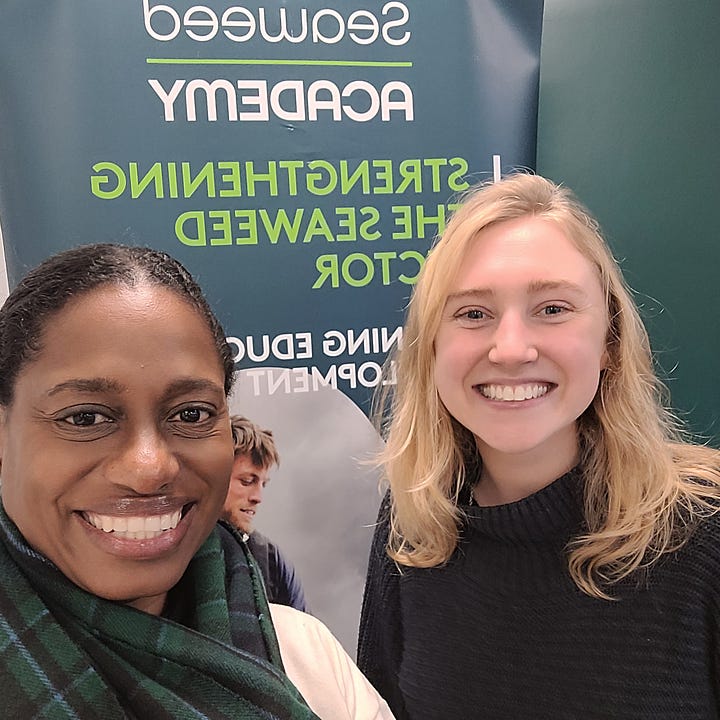
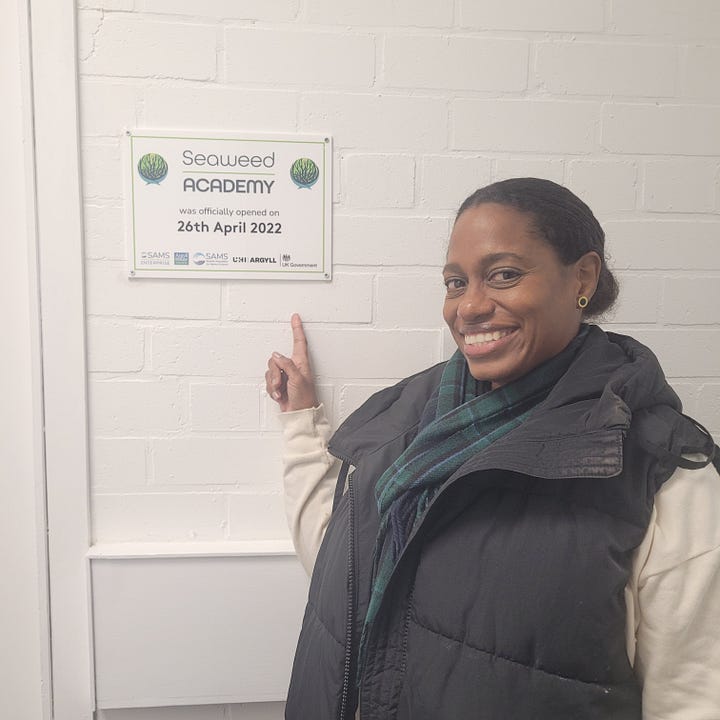
We are working to discover and characterise new strains of seaweed better-suited to seaweed farming practices, or with improved disease-resistance.
Seaweed Academy
On the last day of my visit, a morning coffee with Stevie Jaron - Director of the Scottish Seaweed Industry Association. Stevie is a wealth of knowledge and a great model for a Caribbean Seaweed Collective. My head was buzzing with information after our visit. Unfortunately the weather did not permit a visit to seaweed farms but I have extracted a promise from Stevie for a tour when I return.

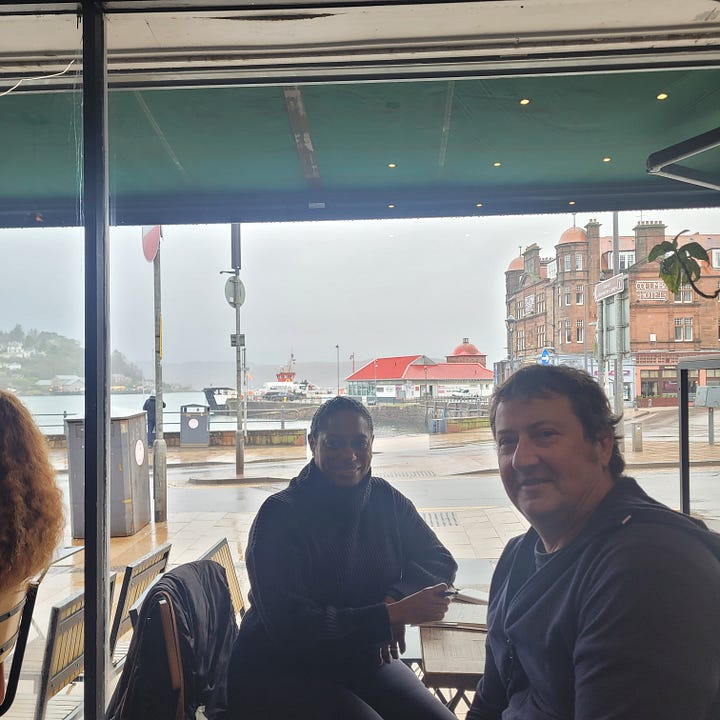
MARINE RESEARCH SCIENTISTS -
The science that is needed in the Caribbean - the study of seaweeds
One of my goals in highlighting these marine scientists is to share the gaps that are missing in the science community in Jamaica and the Caribbean. With a drive to have more students involved in STEM education, there is a range of expertise that is missing within the Caribbean Science community.
There are so many species of seaweed in the Caribbean that have not been investigated. In addition, the ones that are currently being farmed or harvested in the wild need to be evaluated, properly identified and cataloged. Seaweed like Kappaphycus Alvaerezi is a non native specie that was introduced and is now established in many countries of the Caribbean. But that was at least 20 years ago. This and other species that are found in the Caribbean waters need to be re-evaluated for nutritional and physical properties. For this, we need to have more Caribbean scientists conducting these studies.
I sat down with phycologists in the lounge of the SAMS building to discuss how to evaluate species from the wild and current species being used. Using simple texts and photos is one option but the more expensive option getting the fresh plant genetically tested.
I was honored to meet with Professor Michel Stanley, Associate Director for Science, Enterprise and Innovation. Dr. Stanley’s research is in the area of applied phycology both macro and microalgae focusing on the fundamental aspects, that have potential commercial applications. We discussed the need for more research on climate-resilient seaweed species for the Caribbean.
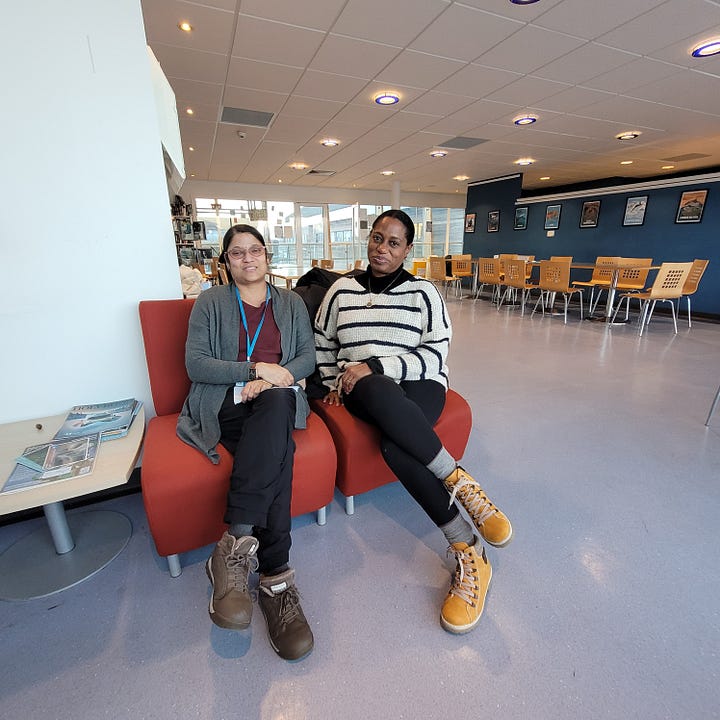
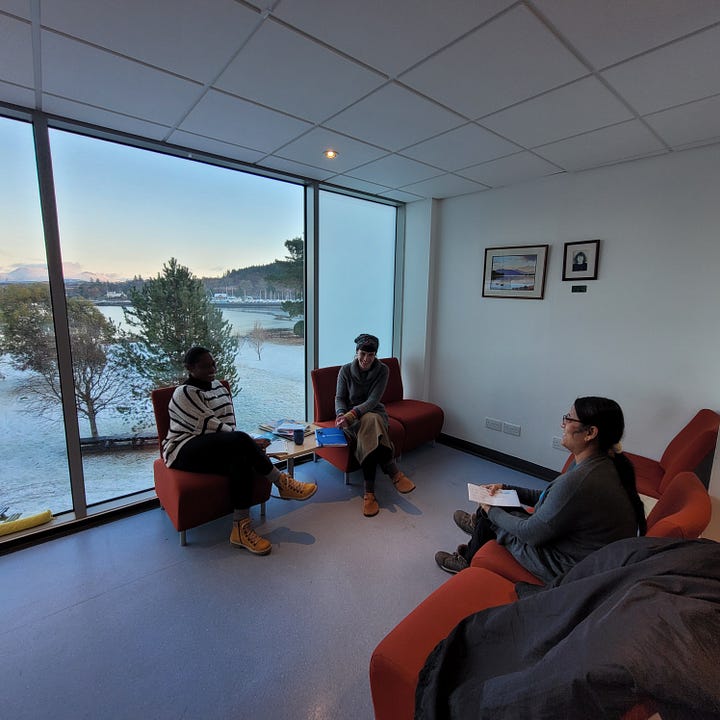
Dr. Puja Kumari, is a phycologist and a macroalgal research scientist with whom I discussed the current species being farmed and the future of seaweed farming in the Caribbean.
From understanding the species that are present, biosecurity, establishing a nursery, propagating, cultivating, maintenance and harvest; prevention of disease, post harvesting, quality control. There is so much to know about starting a seaweed farm.
What do you think, should CAEIH host a Caribbean seaweed Forum?
European Marine Science Park
There is a gap that needs to be filled in Research and Innovation in the aquaculture sector in Jamaica. I pick on Jamaica because I am Jamaican and I would love to see a vision for a similar Marine Science Academy to be established. The vision is sorely lacking for where this sector can go. The sky is the limit.
For 5 years I was an R&D scientist for one of the top pet food companies in the United States. Every year we had a task to brainstorm and create 5 new products. This phase of my career was an exciting one which has left brain working with right brain to produce creative and functional products.
Needless to say one of the highlights was visiting the Innovators and Entrepreneurs at the European Marine Science Park.
“Its quite staggering the range of end markets that seaweed can be used for”
Rhianna Rees
SeaDyes Limited and Crubag
Jessica Giannotti, Founder and CEO of SeaDyes, a marine biotechnology startup developing sustainable seaweed-based dyes and Director of Crubag, an ocean-focused textile design studio, welcomed me into her sunny design studio. Jessica’s journey as a marine biologist turned entrepreneur is inspiring and is a testimonial of the right brain left brain combining art with science. From seaweed, Jessica makes beautiful dyes and textile designs. Jessica bridges the gap between marine science, sustainable aquaculture and the fashion and textile industry.

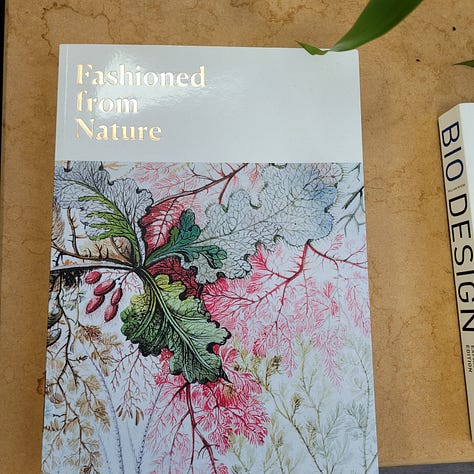

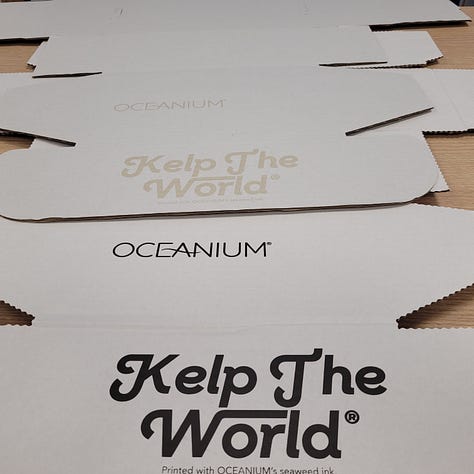
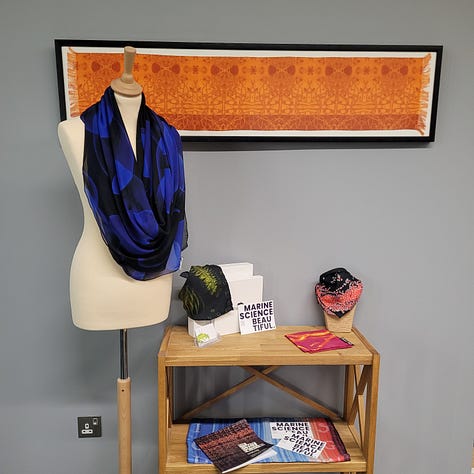
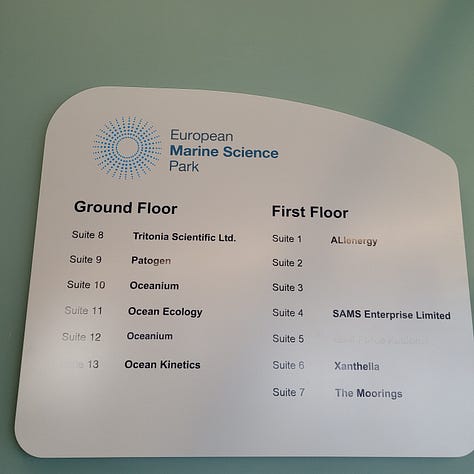
Oceanium - mission to Kelp the world
Dr. Charlie Bavington Co-Founder of Oceanium sat down with me to discuss the various ways one can utilize seaweed not only for human food, health and skincare but also in animal feeds. As the holder of 5 patents, Charlie’s passion for innovation was energizing and the wheels were turning in the number of products that could be produced in the Caribbean.
Oceanium develops and makes innovative products from sustainably sourced seaweed generating economic and social impact, ensuring food security and contributing to ocean health.
SamudraOceans -Seaweed cultivation across borders.
Joyeeta Das is a power house of energy on a mission to grow the seaweed industry from West to East. More recently SamudraOceans acquired Kee Farms in Jamaica and is positioning itself to be the first to grow seaweed for carbon credits. How lucky was it for me that Joyeeta was in Oban the same week that I was? I enjoyed learning about her journey from Engineer to entrepreneur and the juggle of being a working mother. She is a great advocate for Women in Caribbean Aquaculture.
Tritonia Scientific
Martin Sayer, Managing Director at Tritonia Scientific Ltd. introduced me to innovation in technology in under water surveillance at its best - so needed in Caribbean marine spatial management. They were selected as a finalist in the innovation section of Scotland’s Life Science Awards. I walked into a room filled with robotics and double screen computers which Martin took the time to explain how their diver’s collect under water data. If you are interesed in learning more about underwater surveillance I urge you to visit their website.
Hello friends, thank you for reading and sharing this journey. If you like this content please consider sponsoring this newsletter. Please take the time to view past interviews and stories on the website . This is a very interactive platform so please leave your comments and scroll in the note sections for other news.
Let me know what you would like to learn about aquaculture in the Caribbean




